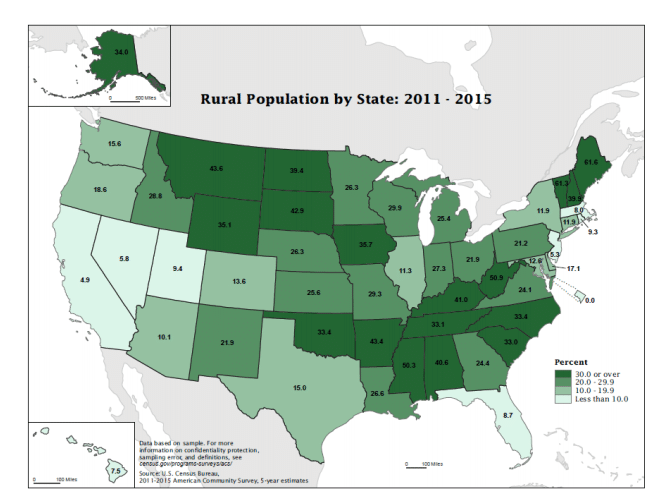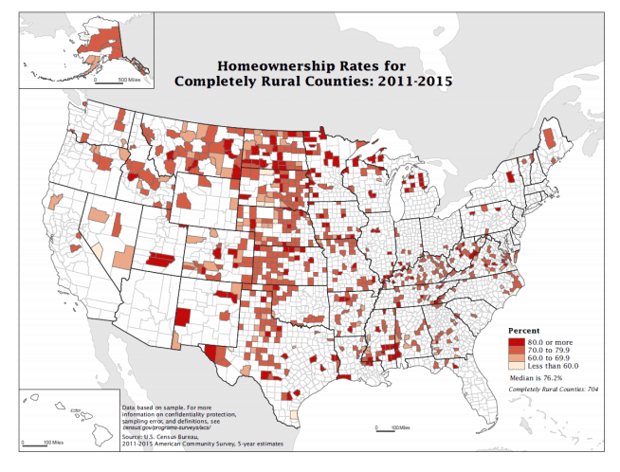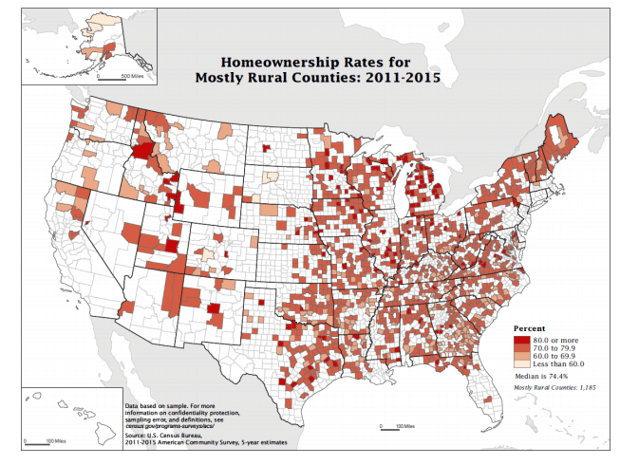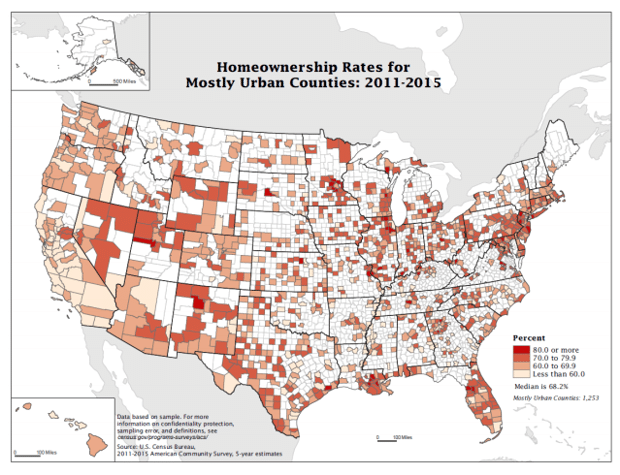Connecting state and local government leaders
New Census data show that the real differences between the city and the country may not match up with popular perception.
That rural-urban divide you’ve been hearing about? It happened back in 1920, when the number of Americans who lived in cities overtook those who lived in the countryside.
In the years since, urban centers have ballooned in population, while the spaces in between have housed roughly the same number of residents. As cities became the nation’s economic powerhouses, drawing folks from all around the world, older, whiter rural America has felt left behind—overshadowed, economically and culturally, by the urban elites, and passed over in favor of the “undeserving” urban poor.
With the election of 2016, the dam holding back this mounting tide of rural resentment has broken, and in its wake we have two Americas cast upon opposite ends of the political spectrum. Donald Trump, perhaps the most citified candidate in American political history, ran a campaign that denigrated cities and the people who have historically lived in them. But it worked—and he won the votes of rural U.S. counties (and some small urban ones) overwhelmingly. Hillary Clinton, who dominated big cities and grabbed the national popular vote, still lost the election.
Who were the rural Americans that were instrumental in creating the current political reality? Joining a chorus of conversations on this topic comes the Census Bureau, bearing fresh data that helps paint a clearer, more nuanced picture of this famously aggrieved segment of the American population.
Below are some key themes that emerge:
This Group Isn’t Monolithic
The Census defines “rural” as anything that exists outside of “urban clusters” with upwards of 2,500 residents or “urban areas” with 50,000 or more.
Around 78 percent of residents in these areas identify as white. The remaining segment contains a mix of races and ethnicities—Native Americans, African Americans in the South, and Mexicans near the US.-Mexico border, along with seasonal workers from other parts of Latin America. Some rural counties in Texas, North Carolina, Idaho, and Kansas have large concentration of immigrants. In Gaines County, Texas, for example, foreign-born residents make up 24 percent of the population. What’s often overlooked is that these sub-groups have their own set of economic and social challenges that are seldom discussed in the larger conversation about rural neglect.
They’re Not Farmers
Only nine percent of rural workers are in agriculture, while 12 percent work in manufacturing, A larger share work at schools, hospitals, or in someone’s home as a caregivers—not on the farm. Some 22 percent are employed in the education and health services industry.
Most Live in The East, Not The West or Midwest
Sixty percent of the rural population lives east of the Mississippi, and almost half lives in the South. The most rural states aren’t lonely and lightly populated Alaska or Wyoming but two New England states: Vermont and Maine.
The map below shows the concentration of rural residents in each state:

Economically, Rural America Is Complicated
Overall, rural families are earning as much as urban ones. Median household income in the country is $52,386, compared to $54,296 for city families. But rural poverty levels are lower—only 13.3 percent compared to 16 percent in cities.
Under this broad pattern, however, there are some regional discrepancies. In the Northeast and Midwest, for example, the earnings tally flips: A rural family is likely to make more in median income than an urban one.
Homeownership is Higher
In America, owning a home has long been the primary way to build wealth. And in that regard, rural America is set, with a homeownership rate of 81 percent. Urban areas only have a 60 percent homeownership rate.
It’s cheaper to buy a home far away from the city, where the national affordability crisis is amplified. But there are also demographic forces behind this. Rural Americans skew older (with a median age of 51, compared to 45 years for city folks), and older people are more likely to be able to afford a house. So are married households, and the countryside is chock full of those. Rural America is also whiter than regular America. And it’s well-known that the barriers to homeownership have historically been and continue to be lower for this segment of the population.
Below is a breakdown of homeownership rates for completely rural counties (with 100 percent of the population living in rural areas), mostly rural counties (50 to 99 percent) and mostly urban (less than 50 percent) ones. The deeper red the county, the higher its share of residents who own homes:



In a blog post, Census researchers write that “the rural population is not the same everywhere except in its distinction of not being urban.” There, in what’s supposed to be a technical definition of “rural,” lies an unintended political statement: Whatever the city is, the country is not. But as the data suggests, that’s more a perception than reality.
Tanvi Misra is a staff writer for CityLab, where this article was originally published.

NEXT STORY: The storage challenge for body-worn camera video



